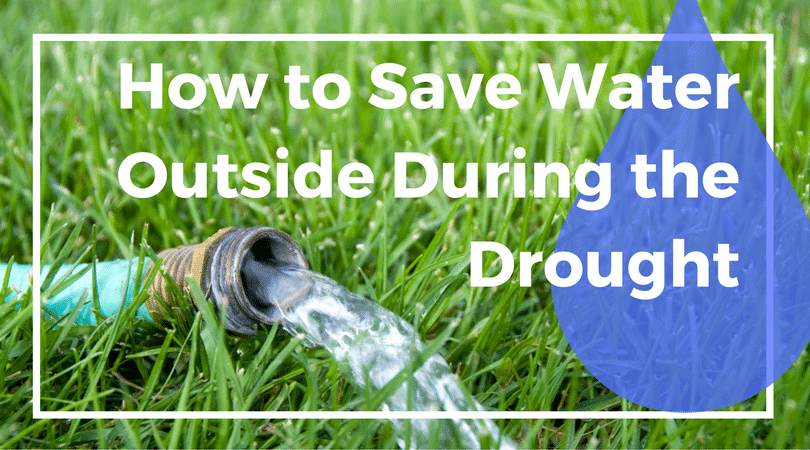If you live in the Southwest, you may be interested in learning how to save water outside.
Why outside?
Because outdoor water use is one of the largest contributors to your water bill every month – even if you’ve taken steps to reduce your water bill.
The ongoing drought has become a serious problem for the states in the Southwest.
As a result, it’s now more important than ever for people to conserve water any way possible. Several restrictions have been implemented to prevent waste. Although most states permit lawn watering, you may want to check the laws as some states enforce these restrictions with fines.
An example of these restrictions include the following:
- Never arunoff when watering any landscape
- Don’t irrigate within two days of precipitation
- Avoid using clean water on nearby walkways, driveways, sidewalks or medians
Some states not only restrict how often you can water your lawn, they also restrict watering to certain days of the week.
Yeah, this is intense.
So let’s take a closer look at this.
How to Save Water Outside
Even with restrictions, water waste continues in a variety of ways.
The changes a home owner or renter makes today in their yard can help both the environment and their wallet:
- Look for leaks: One of the biggest sources of water waste is leaky outdoor faucets, garden hoses and sprinkler heads.
- Change irrigation tactics: Watering the lawn in the evening or early in the morning and using short cycles and/or drip irrigation systems helps prevent runoff and evaporation.
- Use recycled water: Some residents have turned to reclamation systems to collect runoff and/or gray water for reuse on their lawns.
Water-Wise Landscaping
Of course, water waste can be stopped almost entirely by removing natural grass from the yard and switching to a choice that uses less water. Several counties and organizations even provide rebates to residents who replace their grass lawns.
One landscaping option is to replace the grass entirely with plants that resist drought conditions.
If a homeowner or renter still wants a lawn, the only option is artificial grass. Artificial grass doesn’t need to be watered to maintain it. It still provides water drainage to the soil under it when there’s precipitation.
Additionally, it provides a play surface that’s incredibly similar to natural grass and doesn’t experience damage from use with sports equipment or cleats.

